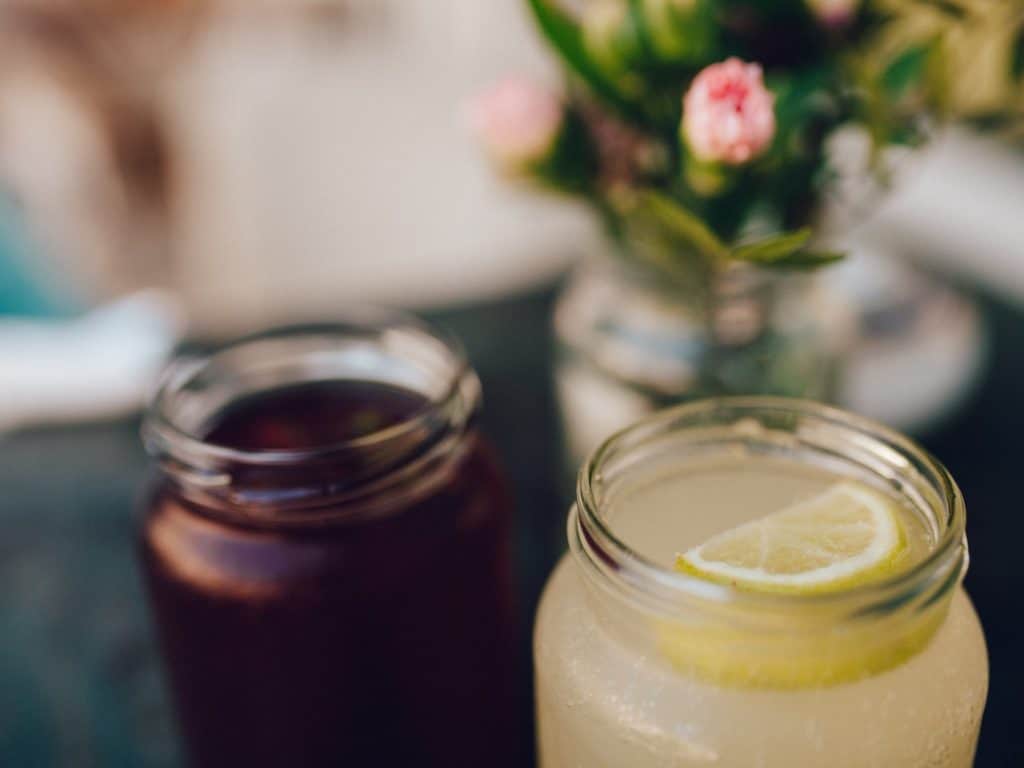
There are several types of healthy and tasty probiotics drinks available now to get them from sources other than yogurt.
There are several benefits of probiotics, in helping to balance your gut flora and overall digestive health, so it’s a good idea to make them a regular part of your routine. You can find out more about the benefits of probiotics here: 15 Benefits of Probiotics (And How to Find One That Actually Suits You)
But it’s not always convenient or possible to take a supplement or eat yogurt. In those cases, you can drink your way to gut health.
There are three basic types of probiotic drinks: kombucha, kefir, and drinks supplemented with probiotics. In kombucha and kefir, the probiotics are brewed naturally as part of the drink. Supplemented probiotic drinks will simply have a probiotic culture added to it.
Kombucha is brewed by placing a scoby (which is the mother culture, kind of like a sourdough starter) in brewed tea along with sugar. The sugar acts as food for the probiotics, so as the kombucha is brewed the sugar is converted into probiotics.
Kefir is made in a similar way but with kefir grains. These are specific to each type of medium being cultured, so there are different strains of kefir for milk or water. Kefir also needs sugar as a food source, and converts it into probiotics.
In addition to a regular routine of drinking water, eating healthfully and exercising regularly, having some probiotics every few days can help you get to that next level of wellness.
Here’re 15 probiotics drinks to try:
1. GT’s Kombucha
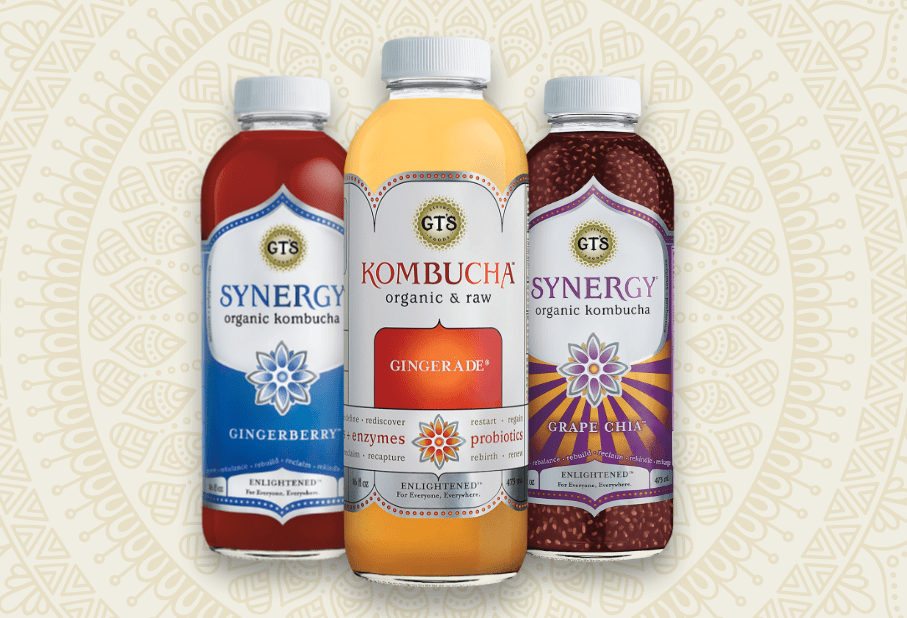
If you look for kombucha, chances are you will find GT’s on the shelf. It’s a high quality brew, using kiwi juice for natural sugars in the brewing process, and always based on the same tea mix and then flavored with natural juices or other things – like ginger or cold brew coffee.
2. Kevita Master Brew Kombucha
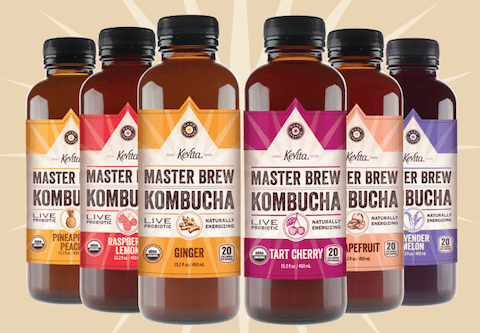
3. Suja Kombucha
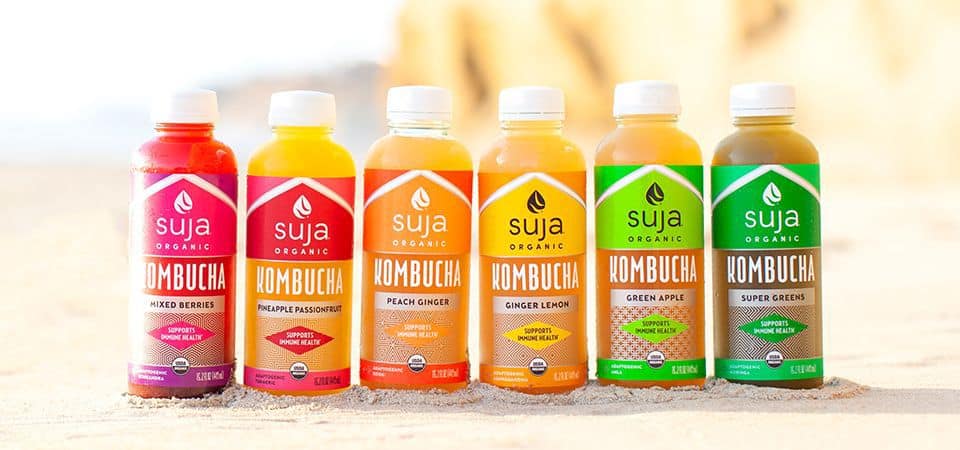
4. GT’s CocoKefir
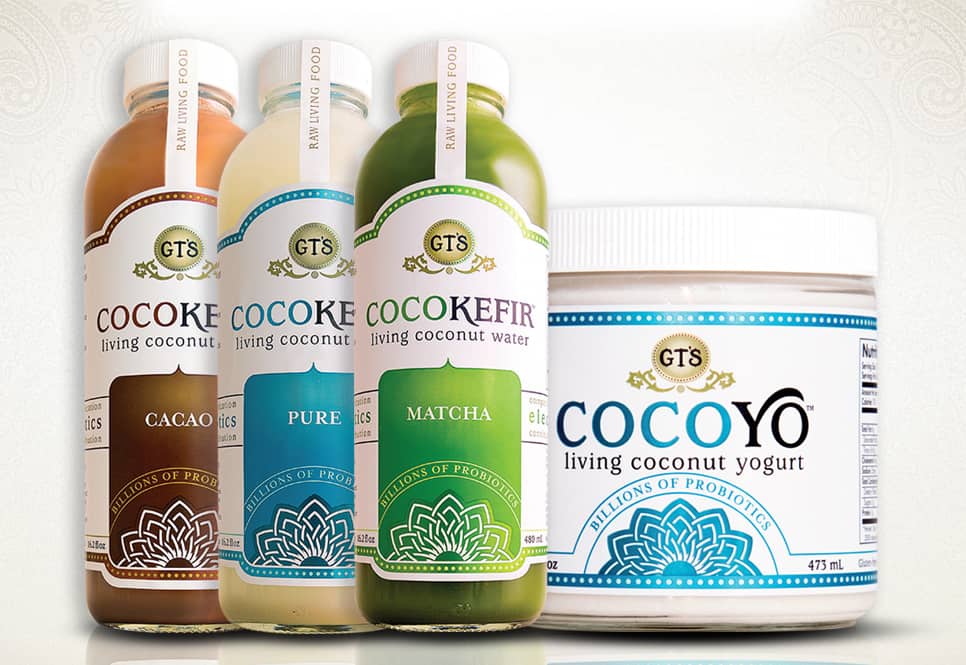
5. Coconut Milk Kefir (Vegan)
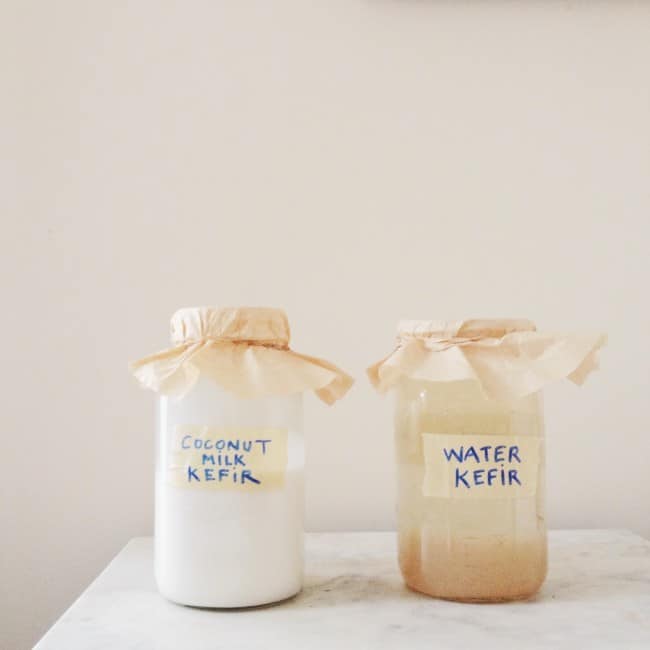
6. Kevita Sparkling Probiotic Drink
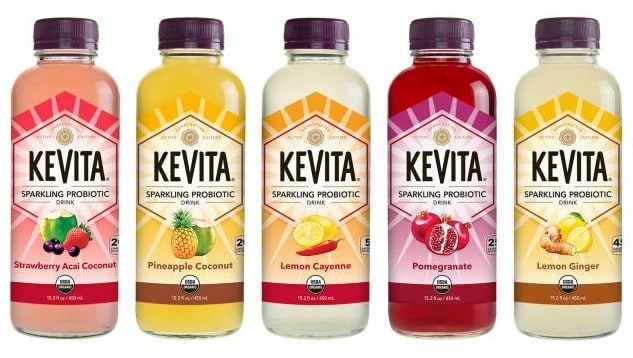
7. GoodBelly Probiotic PlusShots
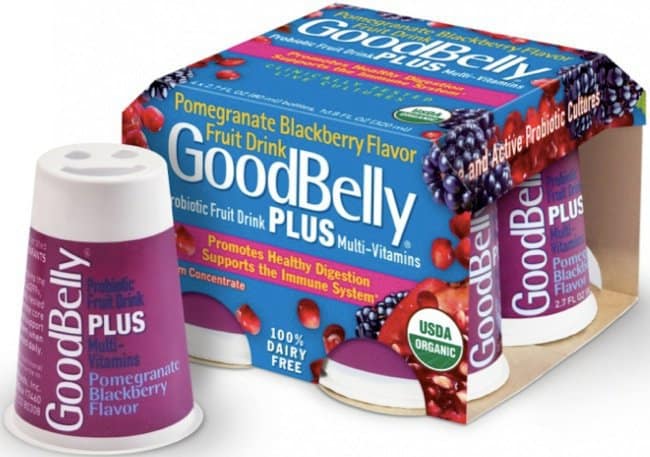
8. GoodBelly Probiotics StraightShots
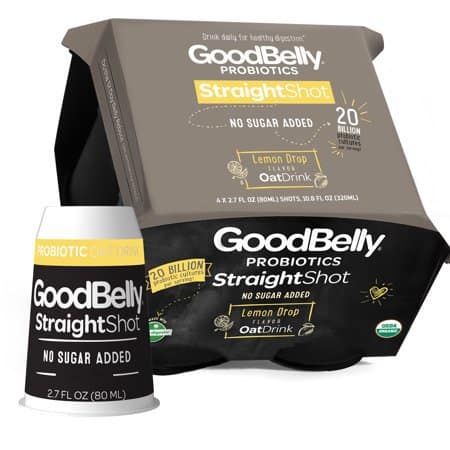
9. Suja Probiotic Water
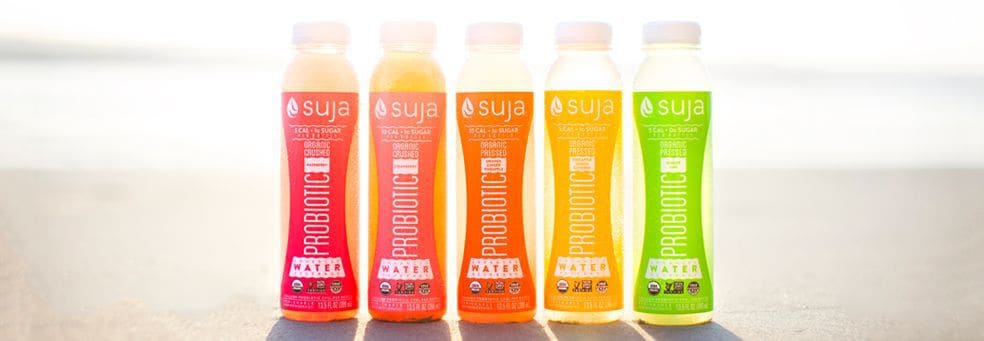
10. Suja Digestion Wellness Shot

11. FarmHouse Culture Gut Punch
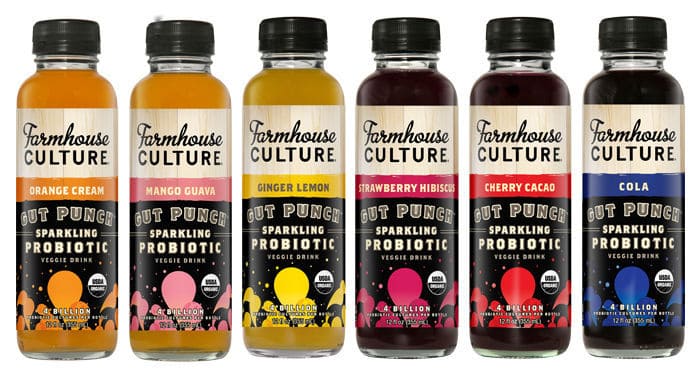
These sparkling probiotics drinks are low in sugar, since they’re made with a base of juiced cabbage and beets, and sweetened with stevia. They have several fun flavors to choose from, and are teeming with four billion probiotic cultures per bottle.
12. FarmHouse Culture Gut Shots
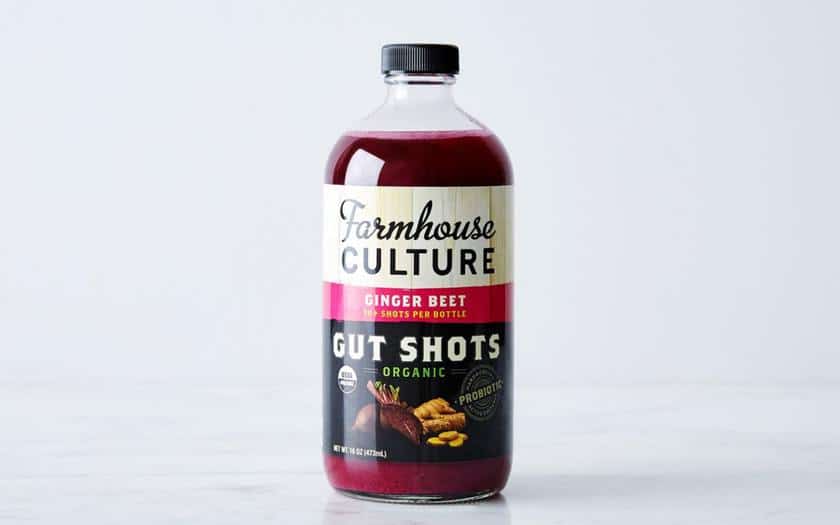
With flavors like garlic dill pickle, ginger beet and smoked jalapeno you better be ready for these shots! They pair probiotics with a base of juiced cabbage and other flavors and juices for a tangy shot of gut health.
13. Harmless Coconut Water Probiotics
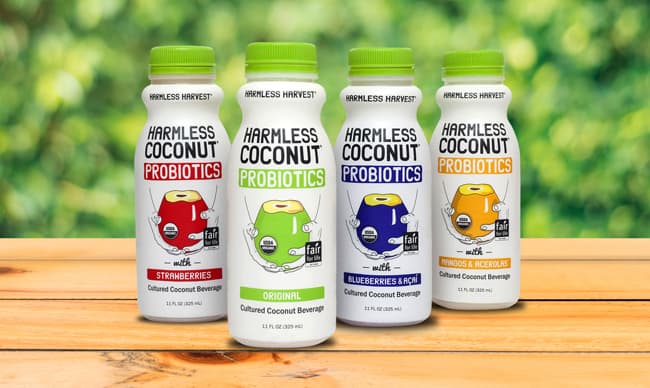
This drink combines coconut water with coconut meat, live probiotics, fruit and cane sugar for a tasty treat to sip. They aim to create a yogurt-like drink, but without using dairy.
They use organic, fair trade ingredients and are aiming to create products without wasting parts of the ingredients – like using the meat of the same coconuts from which they’re getting the coconut water.
14. SCD Essential Probiotics
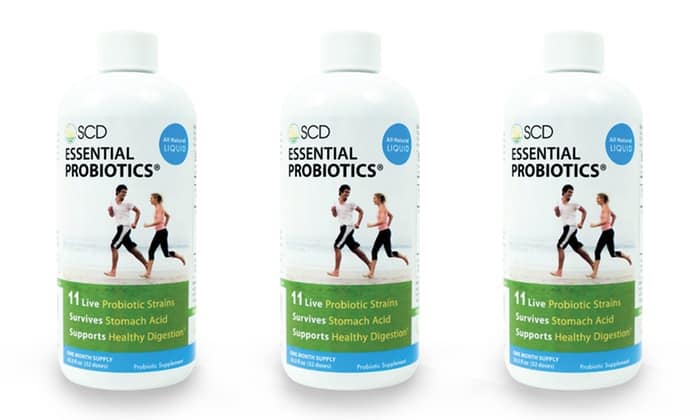
This is a bit different from either kombucha or kefir but is a naturally brewed liquid probiotic supplement. It’s brewed from a base of molasses and juice extracts, and you only need one tablespoon per day.
15. Tropicana Probiotic Juices
As a major juice distributor, this is good news for more easily finding probiotics drinks available. These are made with 100% juices that have no added sugar, and have been supplemented with probiotic cultures.With four flavors to choose from, these will make a family-friendly addition to the probiotic selection.
Comments
Post a Comment